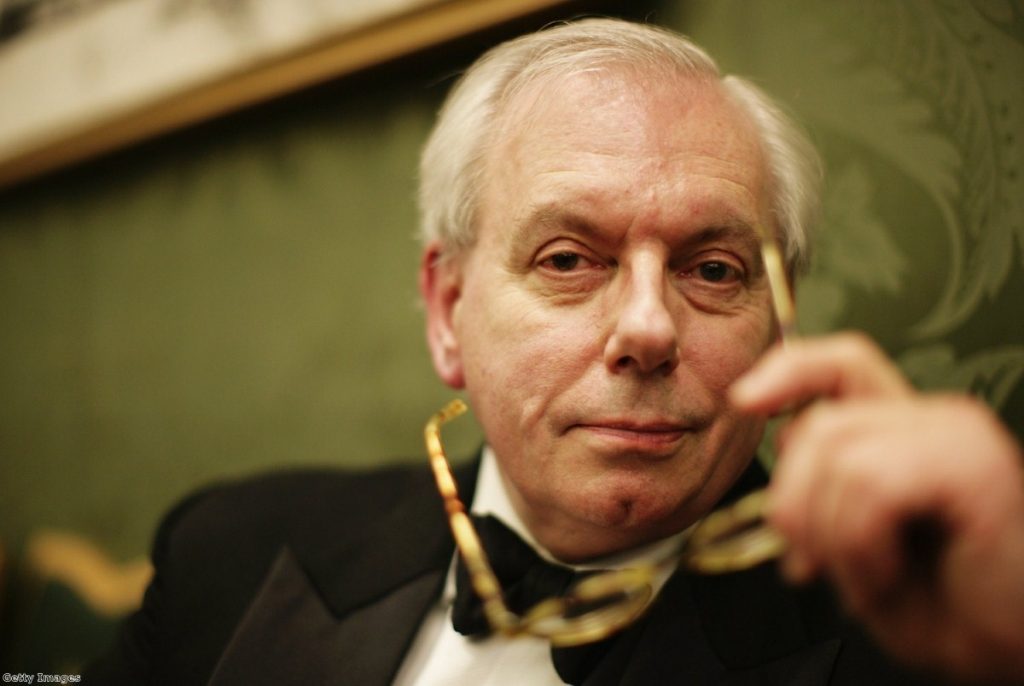David Starkey is a litmus test of our commitment to free speech
David Starkey is plainly not human. He is a walking art installation created to test people's commitment to freedom of speech.
Last night's Question Time saw him at his most odious. He called Huffington Post political director Medhi Hasan 'Ahmed', seemingly as an insult – possibly just in a revealing moment of ignorance. He insisted "nothing meaningful has been written in Arabic in 500 years". He told Tory MP Anna Soubry to "shut up". And he got himself into no end of trouble mulling over sexually "highly mature" 13-year-old girls, who could be "profoundly manipulative".
Starkey is plainly a fool of the highest order. I've never read him, but it's inconceivable he could be a historian of any worth given the boorish generalities which constitute his thought.


However, he is a useful idiot, because he serves to highlight just how tenuous people's newfound commitment to freedom of speech really is.
Many people's response to Starkey is one of soft-banning. Sure, they parrot out Voltaire (or rather Evelyn Hall) like everyone else, but when someone comes along with views which are considered intolerable, the response is to demand they are uninvited from the programme in future and usually removed from TV altogether. This is the world of 'no platforming', of demanding the BBC 'stop giving him airtime'. It is the shadow of the ban, the tactic which preceeds demands for police intervention.
Time to stop giving David Starkey a platform. Addressing Mehdi Hasan as Ahmed is not on, on or off national television. #bbcqt
— Ryan Love (@RyanJL) January 15, 2015
David Starkey says the same things as EDL members. But he gets airtime due to being middle class, educated and a BBC historian. Why? #bbcqt
— Marcus (@MarcusInE17) January 15, 2015
Why the hell is David "blame the riots on black culture" Starkey allowed on @bbcquestiontime once again? Stop giving him air time! #bbcqt
— Alvin Carpio (@AlvinCarpio) January 15, 2015
Was it just me, or did David Starkey just attempt to defend paedophilia? #bbcqt
— Gerry Mckay (@gerrymckay) January 15, 2015
David Starkey should absolutely never be invited on #bbcqt again. Not ever.
— ClaudineLewis (@QuietNotStupid) January 15, 2015
Seriously can we now stop David Starkey getting invited to speak in public? http://t.co/hd4z9wTdzh
— Charlie Phillips (@charliechar) January 16, 2015
The reason Starkey is invited onto political programmes is because he upsets people and gets them talking. Producers – and this is not an industry secret – prefer people who spark a reaction to those who do not. And that is no bad thing. It is good to have someone out there challenging your views. It is good to get angry about politics. And it is useful and worthwhile to have a free debate about political principles, rather than the endless anodyne soundbites which professional politicians offer.
Hasan had as much right to be upset as anyone, but he dealt with Starkey like a man swatting a particularly irritating fly. That's how you challenge stupid ideas and ignorant generalisations. You show what they are.
It is so easy for us all to stand up for free speech against terrorist murderers. It's easy to say people get to draw cartoons without being shot, or write a column without being imprisoned. But it is much harder to wean ourselves off this tendency to soft-ban; to demand that TV producers take someone off air, shops remove offensive T-shirts and newspaper editors take combative columns offline.
This is where the real battle over freedom of speech takes place – in the way we instinctively respond to outrageous commentary. If our instinct is to target the man and not the ball, we cannot consider ourselves defenders of free speech.









